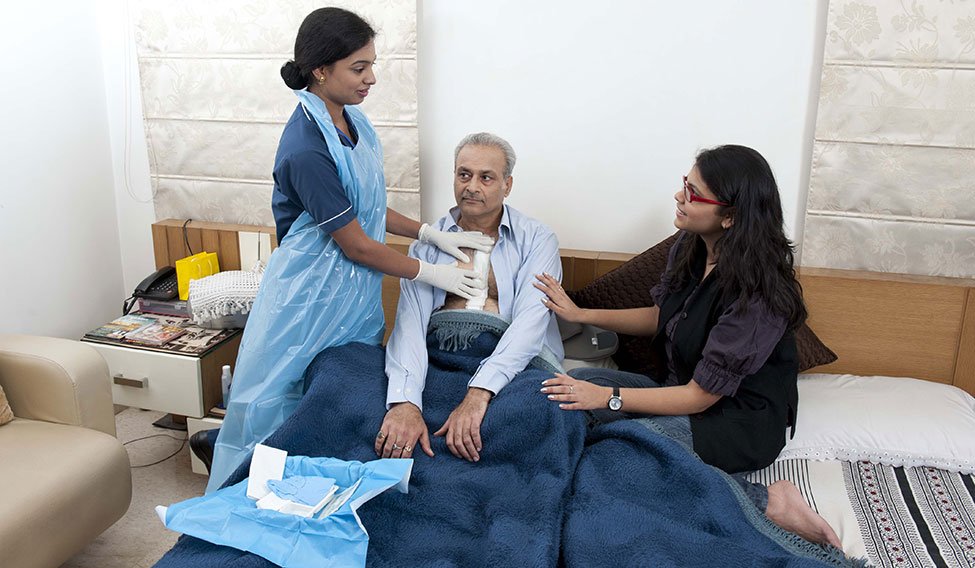
As individuals age, maintaining mobility and physical health becomes essential to ensure a high quality of life. Physiotherapy plays a vital role in achieving this, and choosing home-based physiotherapy offers numerous advantages over traditional clinic-based care. Here are 12 reasons why physiotherapy at home is an ideal choice for elderly individuals.
1. Familiar Environment
Home-based physiotherapy is conducted in the comfort of the elderly person’s home, creating a safe and stress-free atmosphere.
- Familiar surroundings foster a positive mindset and provide emotional security during therapy sessions.
- Therapists can assess and optimize the home environment for better mobility and safety, such as reducing fall risks.
2. Personalized Care
Home physiotherapy ensures care plans are tailored to the individual’s specific health conditions and goals.
- Customized treatment allows exercises to fit the patient’s unique needs, preferences, and limitations.
- Therapists adapt programs to the available home space and resources, ensuring sustainability and practicality.
3. Enhanced Convenience
Traveling to a clinic can be challenging, especially for seniors with mobility issues.
- Home-based care eliminates the need for commuting, reducing physical strain.
- Flexible scheduling ensures therapy sessions align with the individual’s energy levels and daily routines.
4. Emotional Comfort
Being at home enhances emotional well-being, which can positively influence therapy outcomes.
- The supportive and familiar environment reduces stress and anxiety.
- The absence of clinic-related distractions or pressures creates a calm and focused atmosphere.
5. Customized Exercise Programs
Physiotherapists create routines that are practical within the home setting, ensuring ease of execution.
- Exercises are integrated into daily activities, encouraging consistency and long-term engagement.
- Therapists monitor progress and make adjustments based on the home environment.
6. Reduced Risk of Infections
Elderly individuals are more susceptible to infections, making home-based physiotherapy a safer option.
- Avoiding exposure to clinical environments lowers the risk of contracting illnesses.
- Therapists provide hygiene recommendations to maintain a safe and clean space for therapy.
7. Family Involvement
Home physiotherapy encourages family participation, fostering a collaborative approach to recovery.
- Family members can observe and support therapy sessions, boosting motivation for the patient.
- Therapists educate caregivers on exercises and techniques to assist with ongoing care.
8. Better Adherence to Treatment Plans
Convenience and comfort lead to higher compliance with physiotherapy regimens.
- Regular sessions at home ensure consistent adherence to the prescribed treatment.
- Therapists closely monitor progress and modify plans as needed for better outcomes.
9. Increased Independence
Physiotherapy at home focuses on improving functional abilities, empowering seniors to maintain independence.
- Programs are tailored to enhance mobility and the ability to perform daily tasks.
- Goals are set collaboratively to align with the patient’s desire for self-sufficiency.
10. Tailored Rehabilitation Goals
Therapists work with seniors to define meaningful and achievable goals for recovery.
- Rehabilitation is designed around the patient’s specific challenges, aspirations, and hobbies.
- Achieving these goals boosts confidence, motivation, and overall well-being.
11. Continuity of Care
Home-based physiotherapy ensures consistent support through all stages of recovery and maintenance.
- Long-term relationships between therapists and patients enable tailored care as needs evolve.
- Continuity enhances sustained improvements in mobility and physical health.
12. Holistic Approach to Well-Being
Therapists take a comprehensive view of health, incorporating physical, emotional, and lifestyle factors.
- Sessions may include advice on nutrition, stress management, and mental well-being.
- A holistic approach ensures overall quality of life is improved, not just physical recovery.
Conclusion
Physiotherapy at home is a superior option for elderly individuals, offering personalized care, emotional comfort, and unparalleled convenience. By fostering family involvement, reducing infection risks, and focusing on independence, this approach addresses both physical recovery and broader well-being.
For families navigating senior care, home-based physiotherapy provides a compassionate and tailored solution, ensuring seniors achieve their rehabilitation goals while enjoying the comfort and support of their home environment. This innovative care model is not just about physical healing but about empowering older adults to live fulfilling and independent lives.



